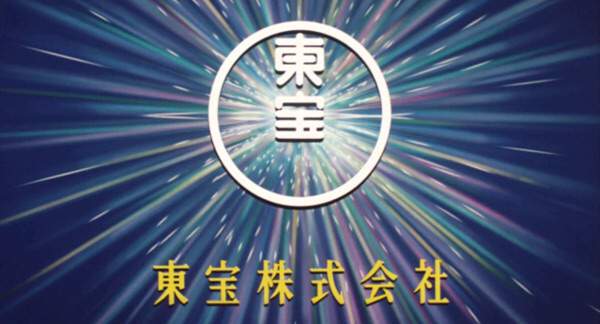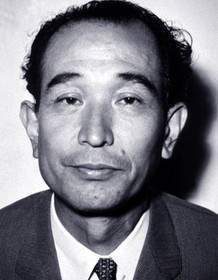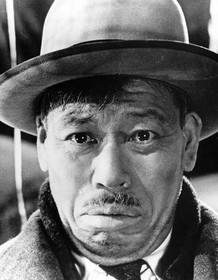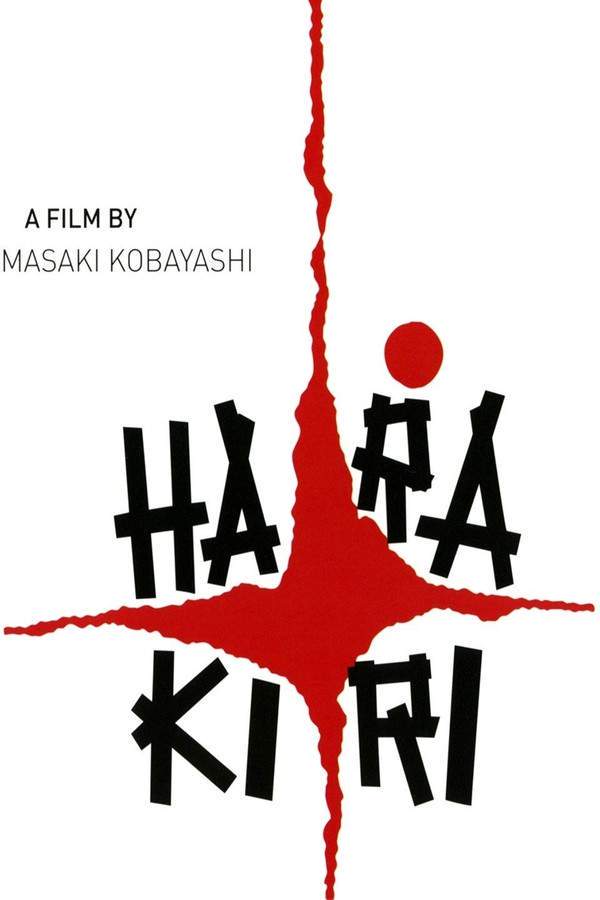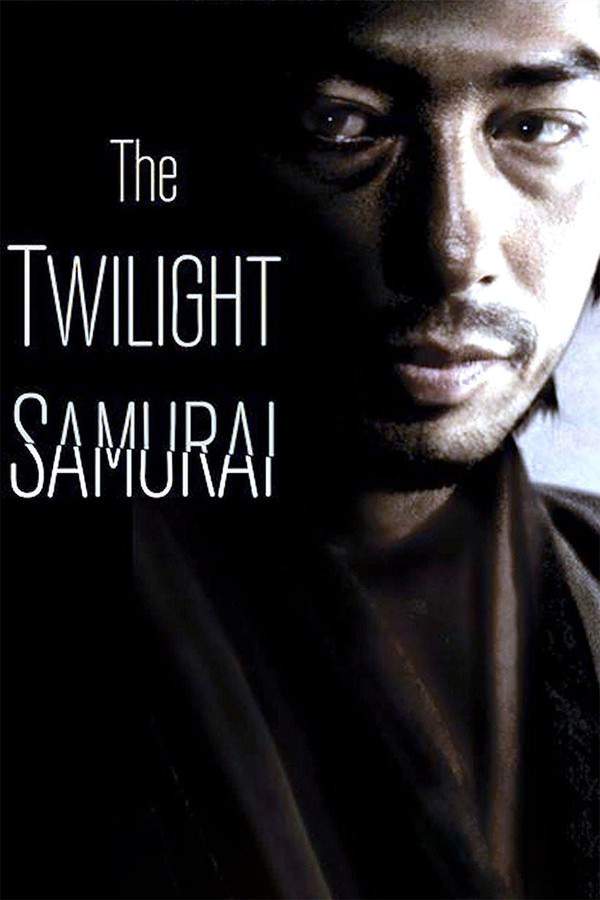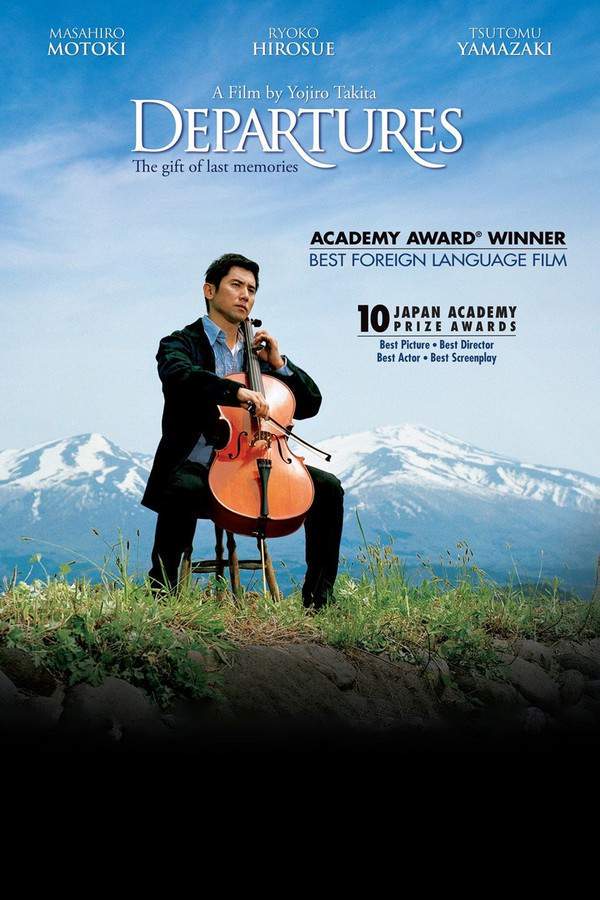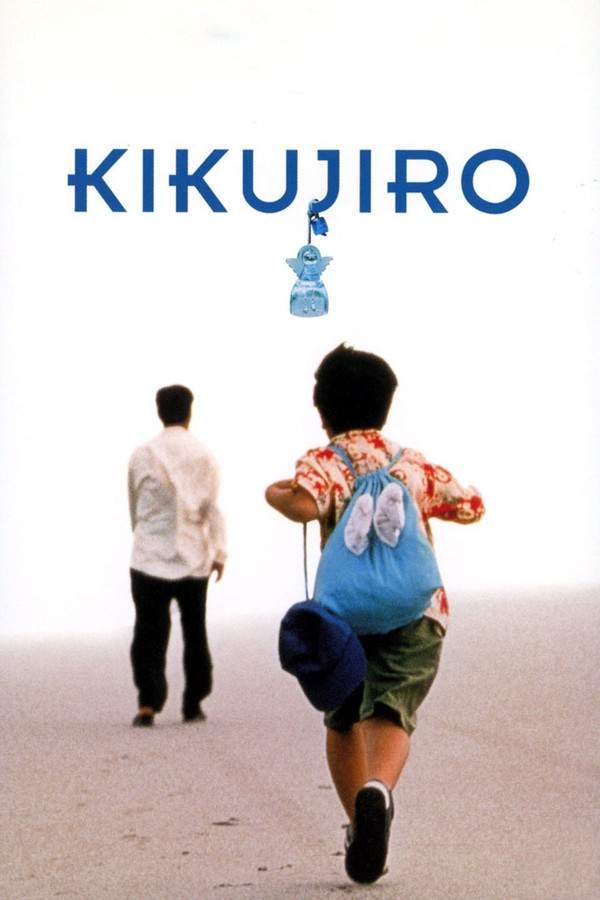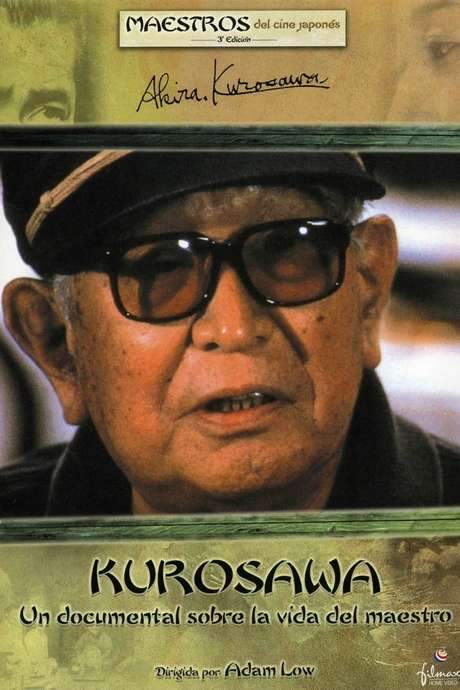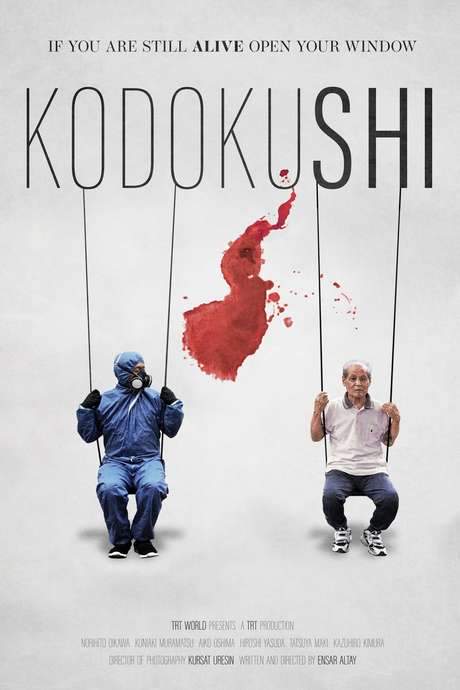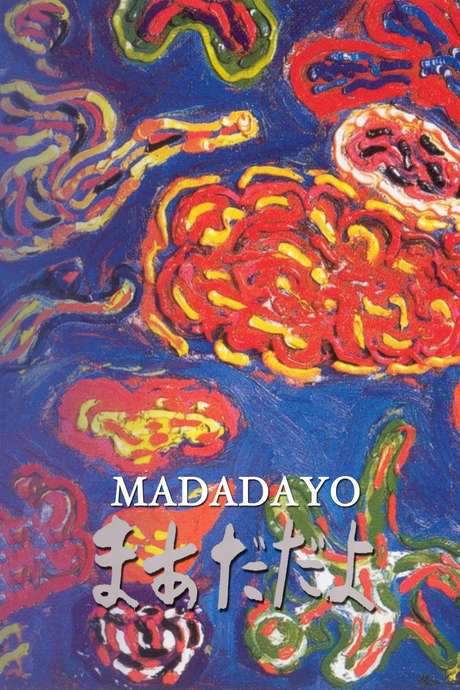Ikiru 1956
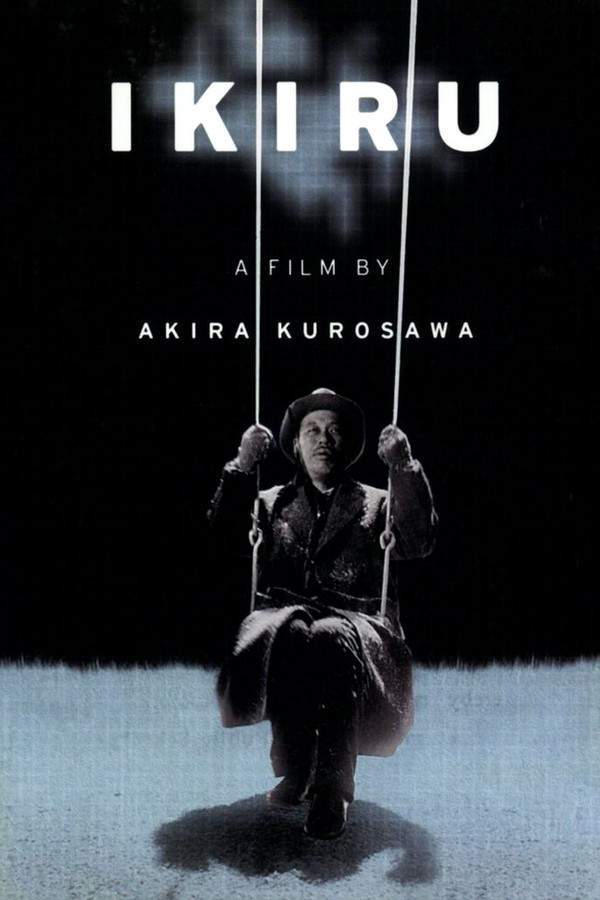
After receiving a terminal cancer diagnosis, Mr. Watanabe struggles to find meaning in his remaining time. Initially consumed by despair, he is inspired by a colleague's generosity and resolves to dedicate himself to a meaningful project. He channels his energy into building a much-needed playground for local children, overcoming bureaucratic obstacles and personal grief along the way. Through this endeavor, Watanabe finds purpose, connection, and ultimately, a quiet acceptance of his mortality.
Does Ikiru have end credit scenes?
No!
Ikiru does not have end credit scenes. You can leave when the credits roll.
Meet the Full Cast and Actors of Ikiru
Explore the complete cast of Ikiru, including both lead and supporting actors. Learn who plays each character, discover their past roles and achievements, and find out what makes this ensemble cast stand out in the world of film and television.
External Links and Streaming Options
Discover where to watch Ikiru online, including streaming platforms, rental options, and official sources. Compare reviews, ratings, and in-depth movie information across sites like IMDb, Rotten Tomatoes, Metacritic or Movie Insider.
Ratings and Reviews for Ikiru
See how Ikiru is rated across major platforms like IMDb, Metacritic, and TMDb. Compare audience scores and critic reviews to understand where Ikiru stands among top-rated movies in its genre.

92
Metascore
8.7
User Score


98%
TOMATOMETER

97%
User Score

8.3 /10
IMDb Rating
Take the Ultimate Ikiru Movie Quiz
Challenge your knowledge of Ikiru with this fun and interactive movie quiz. Test yourself on key plot points, iconic characters, hidden details, and memorable moments to see how well you really know the film.
Ikiru Quiz: Exploring Life and Legacy: Test your knowledge on the poignant themes and characters of the 1956 classic film 'Ikiru'.
What disease is Kanji Watanabe diagnosed with?
Stomach cancer
Liver disease
Heart disease
Tuberculosis
Show hint
Full Plot Summary and Ending Explained for Ikiru
Read the complete plot summary of Ikiru, including all major events, twists, and the full ending explained in detail. Explore key characters, themes, hidden meanings, and everything you need to understand the story from beginning to end.
Ikiru, which translates to “to live,” revolves around a high-ranking Japanese bureaucrat who confronts the reality of his approaching death while striving to make a meaningful, lasting impact on his community. The story commences with an X-ray image accompanied by a voiceover revealing that Kanji Watanabe, portrayed by Takashi Shimura, is unknowingly afflicted with terminal stomach cancer. As the Section Chief of Public Affairs, Kanji is preoccupied with his work, diligently signing papers and managing his team, when a delegation from the Kuroe Women’s Association approaches for support. They seek to transform a dilapidated cesspool into a joyful park where their children can play safely. Sakai, played by Haruo Tanaka, handles their request and turns to Kanji for guidance. Without pause, Kanji instructs him to redirect them to Public Works.
The atmosphere shifts later in the day when a moment of levity sparks laughter in the office as Toyo Odagiri, the sole female staff member portrayed by Miki Odagiri, shares a joke about the tedious bureaucracy. Sub-Section Chief Ono, represented by Kamatari Fujiwara, admonishes Toyo for laughing in the workplace. She innocently explains that she’s sharing a humorous story, but her colleagues share no amusement. The voiceover chillingly notes that Kanji has already been “dead for twenty years.” In this moment, he uncovers an old report he drafted on improving efficiency, collecting dust in his drawer.
The Kuroe Women’s Association repeatedly encounters the labyrinthine bureaucracy, being shuffled between various offices. Eventually, they reach the Deputy Mayor’s office, only to be met with empty political promises that lead them back to square one. When they finally return to Public Affairs, Kanji is absent, having taken a day off to consult a doctor. Unable to recall them, Sakai unwittingly directs them back to Public Works. Frustrated after yet another rejection, the women express their disappointment as they leave, prompting a remorseful Sakai to suggest they submit a written request.
Meanwhile, in a medical waiting area, Kanji learns devastating news from another patient about impending death from stomach cancer. The man warns Kanji of the dire implications of being misdiagnosed as having only an ulcer. As Kanji ultimately receives his diagnosis—which insists there’s no need for surgery—he senses the truth lurking beneath the surface. Overwhelmed, he seeks honesty from the physician, but is met with denial, leaving him in despair.
As a widower raising his son Mitsuo, portrayed by Nobuo Kaneko, Kanji rushes home seeking comfort. However, he discovers that Mitsuo and his wife, Kazue, are more concerned about their inheritance than about his health, shattering Kanji’s hope for support. When Kanji’s coworkers express concern over his absence after years of perfect attendance, it sends shockwaves through his family, particularly as Kazue informs Mitsuo regarding his father. While Kanji drowns his sorrows in a local bar, he meets a writer who invites him to seize the chance to “enjoy life.”
Determined not to remain stagnant, Toyo fortuitously encounters Kanji while searching for him and openly bemoans the dead-end nature of their bureaucratic jobs. Kanji, sympathetic to her plight, agrees to sign her resignation. Their initial connection grows as she brings light into his life, prompting Kanji to reassess his priorities. He then attempts to share his illness with Mitsuo; sadly, the misunderstanding regarding Toyo’s presence ignites Mitsuo’s anger over protecting his inheritance rather than nurturing their father-son relationship.
As Toyo struggles with her stressful job and Kanji seeks the secrets of her zest for life, he learns that her fulfillment comes from crafting toy rabbits for children. Inspired by her passion and remembering the plight of the Kuroe community, Kanji resolves to create a significant legacy.
Five months post-diagnosis, Kanji passes away. His funeral witnesses a profound impact, as the Kuroe Women’s Association mournfully honors him. In a touching reminiscence, a police officer recounts how he saw Kanji joyously swinging in the new park he fought to establish—the very place where children now revel in their newfound joy. With reflections of Kanji’s struggles against the bureaucratic odds, his colleagues eventually acknowledge his contributions. This shared commitment instigates a newfound resolve within them to champion those in need.
As a new group approaches Public Affairs, the fog of bureaucracy looms large, and when Sakai turns to the recently appointed Section Chief Ono for guidance, history threatens to repeat itself. Kimura, a fellow staff member, desperately urges Ono to remember Kanji’s legacy as he grapples with the tumult of paperwork. Standing on a bridge overlooking the Kuroe park, he ponders Kaiji’s determination and contemplates whether he will rise above the overwhelming pressures of bureaucracy to genuinely assist those whose voices are often unheard.
Uncover the Details: Timeline, Characters, Themes, and Beyond!

Coming soon on iOS and Android
The Plot Explained Mobile App
From blockbusters to hidden gems — dive into movie stories anytime, anywhere. Save your favorites, discover plots faster, and never miss a twist again.
Sign up to be the first to know when we launch. Your email stays private — always.
Discover Film Music Concerts Near You – Live Orchestras Performing Iconic Movie Soundtracks
Immerse yourself in the magic of cinema with live orchestral performances of your favorite film scores. From sweeping Hollywood blockbusters and animated classics to epic fantasy soundtracks, our curated listings connect you to upcoming film music events worldwide.
Explore concert film screenings paired with full orchestra concerts, read detailed event information, and secure your tickets for unforgettable evenings celebrating legendary composers like John Williams, Hans Zimmer, and more.


Ikiru Themes and Keywords
Discover the central themes, ideas, and keywords that define the movie’s story, tone, and message. Analyze the film’s deeper meanings, genre influences, and recurring concepts.

Unlock the World of Movies with Our Comprehensive Wiki
Dive into our Movie Wiki for in-depth film encyclopedia entries, including cast biographies, production trivia, plot synopses, behind-the-scenes facts, and thematic analyses. Whether you’re researching iconic directors, exploring genre histories, or discovering hidden easter eggs, our expertly curated movie database has everything you need to fuel your cinematic passion.

Similar Movies To Ikiru You Should Know About
Browse a curated list of movies similar in genre, tone, characters, or story structure. Discover new titles like the one you're watching, perfect for fans of related plots, vibes, or cinematic styles.
Quick Links: Summary, Cast, Ratings, More

What's After the Movie?
Not sure whether to stay after the credits? Find out!
Explore Our Movie Platform
New Movie Releases (2026)
Famous Movie Actors
Top Film Production Studios
Movie Plot Summaries & Endings
Major Movie Awards & Winners
Best Concert Films & Music Documentaries
Movie Collections and Curated Lists
© 2026 What's After the Movie. All rights reserved.


